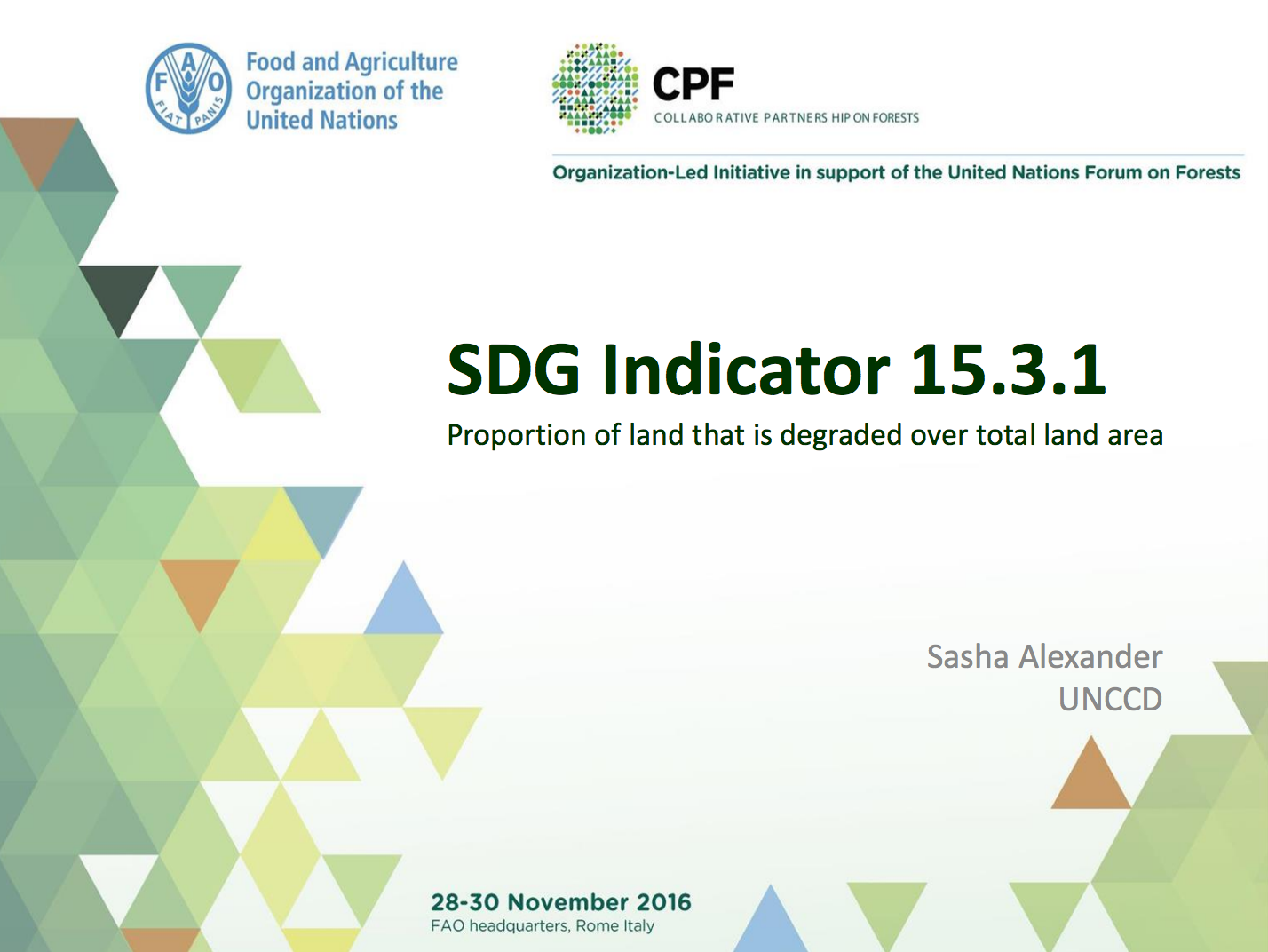Location
The United Nations Convention to Combat Desertification in Those Countries Experiencing Serious Drought and/or Desertification, Particularly in Africa (UNCCD) is a Convention to combat desertification and mitigate the effects of drought through national action programs that incorporate long-term strategies supported by international cooperation and partnership arrangements.
Members:
Resources
Displaying 276 - 280 of 585Land degradation states and trends in the northwestern Maghreb drylands, 1998–2008
States of ecological maturity and temporal trends of drylands in Morocco, Algeria and Tunisia north of 28 N are reported for 1998–2008. The input data were Normalized Difference Vegetation Index databases and corresponding climate fields, at a spatial resolution of 1 km and a temporal resolution of one month. States convey opposing dynamics of human exploitation and ecological succession. They were identified synchronically for the full period by comparing each location to all other locations in the study area under equivalent aridity.
Land for life
Becoming land degradation neutral is not simply about restoring degraded lands. It is about self interest making sure the land can still provide food and fresh water for us, our children, and to the third and fourth generations. It is about giving every child, from Mongolia to Afghanistan and from Ethiopia to China, the fighting chance for a better life. If this all sounds too good to be true, read this book.
SDG Indicator 15.3.1 - Proportion of land that is degraded over total land area
Presentation by Sasha Alexander from the UNCCD about SDG Indicator 15.3.1 about the proportion of land that is degraded over total land area.
Achieving Land Degradation Neutrality at the country level
The twelfth session of the Conference of the Parties of the UNCCD (COP 12) agreed to integrate the sustainable development goals (SDGs) and target 15.3 on Land Degradation Neutrality (LDN) in particular, into the implementation of the Convention, stating
Value of Land: prosperous lands and positive rewards through sustainable land management
Understanding the cost of inaction and beneftis of action are important in order for all stakeholders to be able to make sound, informed decisions about the amount and type of investments in land they make. Even though techniques for sustainable land management are known, many barriers remain and the financial and economic aspects are often put forward as primary obstacles. If the full value of land is not understood by all stakeholders, it may not be sustainable managed, leaving future generations with diminished choices and options to secure human and environmental well-being.




